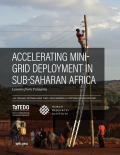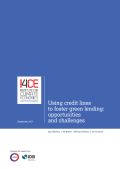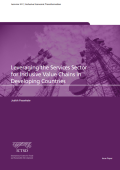
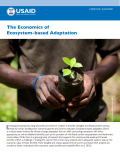
The evidence summary "The Economics of Ecosystem-based Adaptation" highlights the economics of ecosystem-based adaptation (EbA) approaches, which can offer cost savings compared with other approaches, as well as additional benefits.
Benefits include the provision of wild foods, carbon sequestration and biodiversity conservation.
It also discusses the cost of EbA versus hard infrastructure, how to use economic data to evaluate EbA approaches and the economic case for EbA.
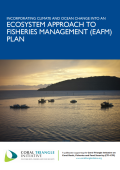
The report "Incorporating Climate and Ocean Change into an Ecosystem Approach to Fisheries Management (EAFM) Plan" explains how the potential impacts of climate and ocean change can be integrated into ecosystem-based approaches to fisheries management.
The report's target audience is governments and organizations creating such management plans in the Coral Triangle region. This region is expected to experience increases in sea-surface temperatures and rainfall. It lists steps that governments and organizations can take to create a fisheries management plan that takes an ecosystem-based approach. This would start with a climate vulnerability assessment. Steps include defining the scope of the fisheries management unit; identifying and prioritizing issues and goals; developing the plan and implementing it; and monitoring, evaluating progress and adapting where needed.
